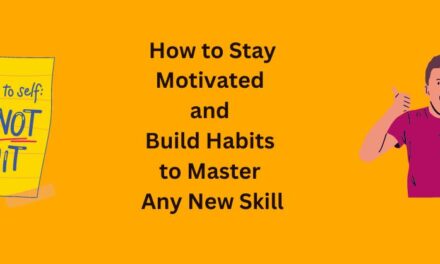How to Smartly Leave Your Job and Pursue Your Passion

Have you ever felt trapped in an unfulfilling job, dreaming of leaving it all behind to pursue your true passion? You’re not alone. Many people struggle to find meaning and excitement within their corporate 9-to-5 careers.
The allure of ditching the daily grind to follow your purpose calls loudly. But is it the right move for you?
Topics covered in this article:
- Weigh pros and cons before quitting your job to follow a dream
- Make a plan while still employed: define mission, goals, make a business plan
- Build support system, financial strategy, habits, systems, contingency plans
- Key Signs You’re Ready to Take the Leap
- Signs You May Need More Time to Prepare
- Summary
Should You Quit Your Job to Follow Your Passion?
Quitting your steady job to follow your passion, while an inspiring idea, also carries real risks and demands careful thought before taking the leap.
In this comprehensive guide, we’ll explore when it makes sense to take the plunge versus when patience and planning are wiser.
You’ll learn how to lay the proper groundwork while employed, evaluate your financial readiness, build an entrepreneurial mindset, and reinvigorate your life with meaning.
Whether your ultimate decision is to stay put or take a flying leap, you’ll gain the insights needed to make the best choice for you.
The Allure of Following Your Dreams
First, let’s examine what makes leaving it all behind to follow your dreams so appealing in the first place. Even if you don’t make the jump now, getting clarity on your motivations can help guide future decisions.
You Can Break Free From Unfulfilling Work
For many, a corporate job or tedious 9-to-5 simply doesn’t light them up inside. As author Tim Ferriss says, “It takes courage to leave the well-worn path that so many tread mindlessly.”
Taking charge of your career’s direction requires bravery but can save you from a life of regret.
When your work feels like just a paycheck, with no deeper purpose behind it, the allure of pursuing your passions is strong. You may feel restless, locked in golden handcuffs but longing for creative freedom and excitement outside the corporate walls.
You Can Focus Your Time on What You Love
Standard office jobs and long commutes leave limited time for exploring your interests after work and on weekends. Escaping the hamster wheel of someone else’s schedule means you can finally dedicate your days to what matters most.
Imagine no longer having to divide your focus between a job that pays the bills and the projects that feed your soul. The luxury of waking up each morning to pour your energy into your purpose makes just about any risk worthwhile.
It Allows You to Live Your Purpose
Everyone has unique talents and dreams. A cookie-cutter job may waste those precious gifts. Taking the road less traveled in order to live out your purpose gives you a chance to fully express your abilities and passions.
Aligning your daily life with your soul’s deepest calling provides a profound sense of meaning and fulfillment. Even on difficult days, you’ll carry the inner knowledge that you’re using your limited time on earth as you were truly meant to.
You Can Become Your Own Boss
Some people dislike being managed under someone else’s thumb, subject to the opinions and whims of a supervisor. Breaking free from traditional employment allows you the freedom to direct your own work and be your own boss.
As an entrepreneur, you get to create your ideal work environment and make the rules. You’re no longer forced into anyone else’s mold but instead have the flexibility to build a career and lifestyle personalized to you.
It Forces You Out of Your Comfort Zone
Stepping away from the familiarity of a steady job and into the unknown pushes you to grow. Our greatest expansions as human beings happen outside our comfort zones. Following your passion forces you to get scrappy and build skills you didn’t know you possessed.
While the dip into uncertainty may feel uncomfortable, you’ll develop greater confidence in yourself and your abilities. If you believe you’re capable of so much more than a standard career path, embracing discomfort is the only way forward.
You May Discover Untapped Talents
Within the structure of someone else’s organization, your assignments are limited by your formal job description. But when you chart your own course, you’re able to explore unique strengths you may not have recognized before.
By investing more fully in activities you’re passionate about, you may unearth talents and interests you never knew existed. Pursuing your purpose reveals hidden dimensions of your potential.
You Could Make More Money
While not guaranteed, some people realize their purpose and turn it into a wildly successful and lucrative business. Whether starting a company, selling a product, or monetizing creativity, the moneymaking possibilities are powerful motivators.
With dedication and ingenuity, you may end up earning significantly more following your passion than you did at any traditional job. Financial rewards don’t drive everyone, but the potential is certainly there.
As you can see, the reasons to leave your steady job behind and pursue your purpose are compelling and speak to our human need for adventure, freedom, and meaningful work. However, before you take any drastic steps, it’s critical to think through the downsides as well.
Count the Cost Before Taking the Leap
Quitting your job isn’t a decision to make lightly. While it may feel cathartic in the moment to dramatically walk away, the practical implications require thorough examination.
You’ll Lose Your Reliable Paycheck
Steady employment provides dependable income at regular intervals. But pursuing your passion often means dealing with unpredictable and fluctuating earnings, at least at first.
Before quitting, assess whether you have the savings to carry you through the lean times.
Building a business or monetizing a passion takes patience. Be prepared for an adjustment period where you earn very little until you gain momentum. Make sure you fully understand the financial tradeoffs before taking the leap.
It Can Take Years to Become Profitable
Many aspiring entrepreneurs invest countless hours for months or years before finally reaching consistent profitability. Only 44% of businesses turn a profit within their first four years. It takes most startups an average of two to three years to start paying a salary.
Make sure you have realistic expectations for how quickly pursuing your passion can become sustainable. Proper planning and preparation are key to bridging the gap between quitting your job and earning income from your purpose.
Health Insurance and Other Benefits Disappear
Steady jobs often come with company-sponsored health insurance, retirement matching, vacation days, and other attractive perks. As a career-changer, be prepared to either purchase your own benefits or go without.
Some people qualify for subsidized health coverage through a federal or state marketplace, but you’ll still lose out on things like disability insurance, life insurance, commuter benefits, and corporate retirement plans. Understand the total compensation tradeoff.
Greater Financial Responsibility Falls on Your Shoulders
When employed by someone else, accounting, bookkeeping, taxes, and other financial operations are handled behind the scenes for you. As an entrepreneur, you’ll take on the burden of tracking expenses, keeping records, managing cash flow, and filing quarterly taxes.
Make sure you’re ready for the added workload, complexity, and stress that comes with being financially responsible for the success of your passion pursuit. Learn to effectively manage money and stay organized.
You Lose Out on Company Investments in Your Growth
At many solid employers, you have access to tools that support your continued education and development, fully company-paid. Things like skills training, workshops, conferences, tuition reimbursement, and certifications enable you to continuously uplevel.
As an entrepreneur, the cost for growth opportunities like these now comes out of your own pocket. Be prepared to independently invest in your ongoing learning and career progression.
It Can Be Lonely and Isolating
Walking away from steady work often means you’ll no longer benefit from the camaraderie and social interaction of co-workers. Entrepreneurship can be a lonely road, especially when things get stressful. Make sure your passion comes with a community or networking opportunities.
Also, realize that friends and family may not fully understand your new lifestyle. Be proactive about putting yourself out there socially so you don’t end up feeling isolated and unsupported.
It’s Riskier and Less Stable
Quitting your job means moving from the relative stability of a paycheck to the unknown of your passion pursuit. You may have to reinvent aspects of your business repeatedly in response to market changes and evolving client needs.
While exciting, this uncertainty can also feel chaotic and draining at times. Prepare yourself mentally and financially for rolling with the punches when plans change. Agility is key.
Work/Life Balance Gets Harder
When your work is also your passion, you may end up overdoing it, not knowing when to switch off. Without clear separation between “the job” and personal time, you’ll need to be very disciplined about setting boundaries.
Make sure you have the time management skills and support system in place to live a full life outside of your passion pursuit. Don’t let your dream consume you and lead to burnout.
You’ll Miss Parts of Your Old Job
While you may dislike your current job overall, there are probably still aspects you appreciate, whether it’s your co-workers, manager, stable schedule, or comfort of knowing your role.
It’s easy to idealize the upside of quitting before you’ve actually made the transition. Make sure you reflect on the pieces of your current work situation that actually still serve you well.
Passion Pursuit Demands Constant Hustle
Successful entrepreneurs and career-changers often work incredibly long hours, especially in the early stages of establishing their businesses. Quitting your job to follow your purpose will require immense motivation, discipline, and sacrifice.
Make sure you have the grit, determination, and work ethic to power through rejections, setbacks, dry periods and other challenges that will inevitably arise. Following your passion is not for the faint of heart!
As you weigh the pros and cons, avoid making any rash decisions based solely on emotions or a bad day at the office. Carefully reflect on both the upsides and downsides so any steps you take are made from a balanced and informed place.
Lay the Groundwork While You’re Still Employed
Now that you have a more complete understanding of what it takes to leave your job, let’s examine some smart ways to start building your launch pad while you’re still collecting a paycheck. Taking small steps ahead of time will greatly ease your eventual leap.
Dedicate Your Free Time
First, get strategic about using nights, weekends, and any other free moments to nurture your passion before making it your full-time work. Slowly transitioning from hobby to side hustle allows you to limit risk.
Maybe you spend an hour before bed each night developing industry knowledge and skills related to your purpose. Or you set Saturday mornings aside to work on your business plan. Look for pockets of time where you can fit in passion work around your existing job.
Test Your Concept Part-Time
See if your business idea has legs by piloting it on a small scale first. Trying to launch while employed allows you to work out any kinks or pivots needed while limiting financial risk.
Perhaps you offer photography sessions or writing services to a select group of early customers, keeping it manageable alongside your regular job. Successful testing boosts your confidence and readiness to fully take the entrepreneurial plunge when you eventually leave your job.
Build Your Audience or Client Base
Make sure real demand exists for your offering before leaving your steady paycheck behind. Use your free time to start developing an audience and ideal customer avatar so that revenue opportunities exist on day one after you make the jump.
Maybe you grow your social media following, send free samples to targeted demographics, or run special promotions to attract early buyers and adopters. A built-in customer base is crucial.
Enroll in Relevant Education Programs
Identify if you need additional training or certifications to successfully monetize your passion. Many entrepreneurs study part-time at night or on weekends to acquire the skills their future business needs.
Just an hour or two invested in your continued learning and growth each week will pay dividends. Education gives you confidence and credibility.
Assemble Your Support Team
Don’t wait until you quit your job to start building up your network of mentors, collaborators, and champions. Use your spare moments to connect with potential partners and advisors who can provide guidance.
Growing your support squad ahead of time ensures you don’t feel isolated or alone out there as a new entrepreneur. Surround yourself with people who believe in you and your abilities.
Get Financially Ready
Aggressively build your savings so you have ample runway when you do leave your job. Cut unnecessary costs, downsize if needed, and sock away every spare dollar you can.
Also use this time to pay down existing debts so you have minimal outgoing expenses pulling at your passion project’s limited resources. Think through your budget carefully.
Address Any Self-Development Areas
Make sure you have the traits needed to successfully work for yourself, such as self-motivation, discipline, time management skills, comfort with uncertainty, networking abilities, and work-life balance.
Be honest about your potential weaknesses and use your spare time now to improve in those areas so you’re fully equipped for entrepreneurial life once you hand in your resignation. Invest in personal growth.
Approaching your passion pursuit gradually allows you to adjust to changes slowly instead of shocking your system by trying to do everything at once. Keep laying groundwork while minimizing risk.
Define Your Mission, Vision, and Goals
Beyond practical steps, use your spare moments to get clear on your underlying mission, vision, and goals related to your passion. Define exactly what future you’re working to build.
Outline Your Mission Statement
Your mission statement summarizes the heart of your purpose and the needs you hope to meet through your work. It focuses on how you’ll impact others or change the world.
For example, “My mission is to inspire women to embrace their creativity through art classes and workshops” or “My mission is to make gourmet cooking simple and approachable for busy families.”
Craft Your Vision Statement
Your vision statement paints an ideal future picture of the success you hope to achieve. It focuses on the long-term dream, not immediate steps.
For example, “My vision is to build a thriving community of women supporting and empowering each other through artistic expression” or “My vision is a world where every family enjoys homecooked meals together.”
Set S.M.A.R.T. Goals
Complement big-picture vision statements with specific, measurable, achievable, relevant, and time-bound (S.M.A.R.T.) goals. Goals are measurable stepping stones toward fulfilling your purpose.
For example, “Launch art workshops focused on watercolors and acrylics by Q2” or “Develop 10 easy gourmet recipes for busy parents by December.”
Getting ultra clear on the change you want to create provides direction and keeps you motivated when you finally take the full leap into following your dreams or launching your side business.
Create a Comprehensive Passion Business Plan
Treat pursuing your passion like launching a business venture, even if you have no intention of monetizing it. Developing a thorough business plan helps you strategize how to turn your purpose into a viable income source once you leave your job.
Outline Your Offering
Get specific on exactly what product or service you plan to sell related to your passion. What value will you provide to others and how will you deliver it?
For example, individual music lessons, live painting events, cooking classes, fitness training, nutritional counseling, handmade crafts, writing services, photography sessions, etc. Be detailed.
Identify Your Target Audience
Get clear on who you want to serve. Define your ideal customer demographics like age, income, gender, interests, and values. Understand your audience’s needs to effectively market to them.
For example, time-strapped moms, stressed professionals, retirees looking for hobbies, teenagers interested in growth. The more niche you get, the better.
Research Your Competition
Examine who else is already operating in your passion space so you can differentiate yourself. Study what they offer and at what price points. Look for gaps you can uniquely fill.
For example, cooking classes focused on diets like keto and paleo, art lessons using vinyl records and unconventional materials, mobile fitness training for senior citizens. Find your special sauce.
Outline Your Marketing Plan
Detail exactly how you’ll attract potential customers and clients. This may include things like social media, digital ads, search optimization, infographics, guest blogging, email newsletters, networking events, etc.
For example, Instagram feed showcasing your product/service, lead magnets in exchange for emails, special deals for new customers. Think through what will work for your audience.
Define Your Revenue Streams
Will you charge one-time fees per service or product? Recurring subscriptions? Accept donations? Advertise? Consider what monetization strategies make the most sense for your business model.
For example, package deals for multi-class bundles, membership subscriptions for access to online courses, commission on art piece sales. Mix and match approaches for diversified income.
Calculate Startup Costs
Research what equipment, licenses, insurance, advertising, website hosting, software, inventory, training, etc. you’ll need to get started. Build out a detailed budget so you know what funding is required to launch.
For example, cooking supplies, photography lighting and backdrops, kiln and pottery tools, workout equipment, recording equipment for online courses. Identify every expense.
Set Milestones and Growth Goals
Define incremental milestones that will measure your success and growth, like number of customers, monthly revenue targets, product launches, etc. Establish realistic timelines for hitting each milestone.
For example, get 10 customers within two months, double email list subscribers within six months, hit $3k in monthly revenue by year one. Create measurable steps.
By proactively mapping out all aspects of your passion business, you’ll be leaps ahead when you eventually leave your job. You’ve already built the scaffolding for turning your purpose into profit.
Develop an Entrepreneurial Mindset
Beyond just business operations, pursuing your passion often requires adopting an entrepreneurial mindset focused on selling, marketing, networking, managing money, and continuously learning. Start strengthening these skills now.
Boost Your Sales Abilities
Sales is really about confidently sharing how you can help people. Start practicing discussing your value and overcoming objections through role-playing. Become comfortable promoting yourself and your offering.
Learn Marketing Fundamentals
Build expertise in areas like identifying target audiences, positioning your niche, writing compelling copy, developing authority, and leveraging social proof. Marketing is about strategic messaging and positioning.
Master Networking and Relationship-Building
Successful entrepreneurs rely on strong networks and partnerships. Start connecting with influencers in your industry, attending events, and sharing referrals. Relationships are crucial, so learn how to build them.
Get Savvy with Social Media
Organic and paid social can drive significant exposure and sales. Learn best practices for each platform, post consistently, and track data. Leverage communities relevant to your audience.
Strengthen Your Money Management
Brush up on financial skills like forecasting revenue, tracking deductions, managing cash flow, separating business and personal finances, and budgeting based on priorities. Handling money wisely is critical.
Develop Project Management Abilities
You’ll need to simultaneously juggle many responsibilities, so organization and productivity matter. Systemize your work, manage deadlines, tackle highest priorities first. Don’t let details slip through the cracks.
Commit to Continual Learning
Consistently invest time and money into expanding your skills and knowledge. Stay on top of industry trends. Be a lifelong learner who seeks growth in areas of weakness.
By proactively developing an entrepreneurial toolkit, you’ll be prepared to thrive when you leave your job. Approach your passion like a business owner before you make it your business.
Surround Yourself with Support
One common entrepreneurial pitfall is trying to do everything solo. But no successful career-changer rides alone. Intentionally build up your team of supporters who will provide inspiration, guidance, and accountability.
Seek Out Mentors and Advisors
Connect with those who have walked the passion pursuit path before you. Learn from their mistakes and leverage their hard-won wisdom. Let experienced mentors guide you around avoidable obstacles.
Network with Like-Minded Entrepreneurs
Fellow career-changers understand the ups and downs in a way your non-entrepreneurial friends may not. Bond over shared experiences and swap growth opportunities.
Join Relevant Online Communities
Groups focused on your particular passion and industry provide camaraderie and insider tips. Share your own challenges and solutions to help others in return.
Cheerlead Others
Support those who are further along by offering testimonials, reviews, referrals, and shares. Then when you need encouragement, others will cheerlead you in return.
Rally Family and Friends
While loved ones may not fully “get it,” their support means everything. Share your journey, celebrate milestones, and lean on them when times get tough. Let them invest in your purpose.
Building a tribe creates accountability, inspiration, and reassurance that you’re not alone. Your network will propel your success and provide a safety net on the inevitable hard days.
Adopt Wise Financial Strategies
Since pursuing your passion likely involves some financial instability, at least initially, take proactive steps to manages money wisely. Learn to budget, minimize expenses, and maximize earnings.
Aggressively Build Your Savings
Before quitting your job, accumulate substantial savings that can support you for 6-12 months with no other income. This provides a critical cushion as you build momentum.
Explore Income Streams Beyond Your Main Offering
Diversify your revenue with things like affiliate marketing, advertising, consulting, speaking engagements, teaching classes, coaching, and creating digital products. Don’t rely only on your core offering.
Manage Cash Flow Effectively
Use systems to track income and expenses, follow a budget, collect payment, and monitor your profitability. Finances need to be carefully managed.
Limit Your Personal Overhead
Cut discretionary costs, pay down existing debts, downsize if needed. Minimize outgoing cash flow in your personal finances so more resources can be invested into your passion pursuit.
Stick to Your Budget
No matter how profitable your business becomes long-term, expect lean times at the start. Follow your budget diligently, even when it feels restrictive or discouraging. Stay disciplined.
Invest Only What You Can Afford to Lose
Be conservative with funding your passion project, especially at first. Only invest what would not cripple you to lose. Start small and reinvest earnings to scale up.
With limited incoming cash flow at the start, diligent money management and frugality are essential. Control expenses, maximize earnings, and set yourself up for sustainability.
Adopt Habits and Systems for Success
Work smarter, not harder. Set yourself up for productivity and balance by implementing systems and habits that facilitate success. Structure creates efficiency.
Outsource What You Can
Consider hiring part-time help for tasks that don’t require your specialized expertise, like cleaning, bookkeeping, appointment scheduling, social media, web design, etc. Outsource what takes you away from your zone of genius.
Automate Where Possible
Use tools like AI Assistant, email autoresponders, scheduling bots, payment processing, and project management software to work more efficiently. Let technology streamline operations behind the scenes.
Batch Similar Tasks
Group related activities together to complete them in focused chunks instead of a scattered, start-stop approach. For example, answer all emails at once, not in between other tasks.
Block Your Calendar
Reserve time on your calendar for priority activities so they don’t get crowded out by less important demands. Protect your time proactively.
Systematize Recurring Processes
Standardize repetitive tasks by creating templates, checklists and procedures so you don’t waste mental energy reinventing the wheel. Follow systems mindlessly.
Eliminate Energy Drains
Cut out unnecessary meetings, notifications, busywork and time-wasters that siphon your productivity. Declutter your schedule ruthlessly.
Structure and repetition create efficiency. Design your ideal workflows, delegate lower-level details, and let your systems run on autopilot.
Set Healthy Boundaries
When your work is tied to your purpose, you may be tempted to overdo it. Counteract this tendency by intentionally building rest, reflection, and fun into your schedule.
Unplug on a Regular Basis
Completely disconnect from email, social media, and work notifications for set periods of time so you can recharge without distractions. Unplug daily.
Have Absolute Non-Negotiables
Block off time that is 100% protected from work each week, whether it’s an hour with family or a weekly game night. Schedule activities you refuse to compromise on.
Maintain Physical Health
Prioritize movement, nutrition, and sleep so you have the energy to sustain busy seasons. Wellness directly fuels your performance. Don’t neglect self-care.
Set Work Hour Limits
Define specific start and end times for your work day and stick to them, adjusting if needed based on your natural productive times. Work expanded hours selectively, not by default.
Take Real Time Off
Use your vacation time, even if staycationing at home. Do not let paid time off expire. You need recovery days to maintain sanity amidst the hustle.
When your work and play blur together, maintaining boundaries prevents fatigue. Prioritize other areas of your life so your passion has a chance to energize instead of exhaust you.
Manage Your Mindset Around Uncertainty
Following your purpose often involves dealing with unpredictability, change, and seasons of chaos. Reframing how you view uncertainty can help you thrive outside your comfort zone.
View It as an Opportunity
See change as a chance to flex your creativity, problem-solving, and resourcefulness. Let uncertainty inspire innovation. Stay open and agile.
Remind Yourself It’s Temporary
All phases come to an end. Difficult seasons will pass. Don’t make permanent decisions based on temporary circumstances. This too shall pass.
Focus on What You Can Control
Rather than stressing about ambiguity, shift your energy to areas within your influence like your schedule, habits, learning, and health. Direct your power inward.
Appreciate Spontaneity
Instead of requiring rigid plans, let go and see where spur-of-the-moment opportunities take you. Enjoy the thrill of flying by the seat of your pants occasionally.
Ask for Help More
Vulnerability strengthens connections. Challenges are chances to build relationships. Reach out when you’re feeling overwhelmed. You don’t need to white-knuckle it alone.
Refusing to be intimidated by uncertainty results in greater confidence. Flexibility and openness to new experiences will serve you well on your non-linear journey.
Reality Check: Have Contingency Plans Ready
While hopefully your passion pursuit succeeds wildly, also prepare for scenarios where it takes longer than expected to gain income. Have backup options in your back pocket before taking the leap.
Keep a Return Path Open
Instead of burning bridges, maintain positive relationships and give proper notice when leaving so going back to your old job or industry remains viable if needed.
Have Emergency Funds
Make sure you have access to at least 6-12 months living expenses so you don’t end up financially trapped if your income doesn’t ramp up quickly.
Sign Up for Affordable Healthcare
Having affordable healthcare coverage is crucial when transitioning from full-time employment to pursuing your passion business.
Losing employer-provided insurance can be a major concern, but with proper planning there are options to obtain individual or family health plans that meet your needs and budget.
Apply for Unemployment Insurance
Depending on why you left your job, you may qualify for unemployment payments for a period of time while getting your passion business off the ground.
Have a Timeline for Re-evaluation
Set specific check-in points to objectively assess your progress and decide if pivoting is required. Be ready to course-correct.
Know Your Limits
Should you begin experiencing burnout, depression, or mounting stress, have honest conversations with loved ones about shifting gears. Your wellbeing comes first.
It can be tempting to go all-in pursuing your purpose, but smart career-changers also prepare for detours or delays. Have contingency plans for recalibrating if needed.
Key Signs You’re Ready to Take the Leap
It takes courage to leave the beaten path and follow your purpose. But there are signs you’re ready to take the entrepreneurial leap:
- You’ve successfully tested your concept part-time while working.
- You have financial savings to cover 6+ months of basic expenses if you earned no income.
- You’ve identified mentors and supporters who will guide your transition.
- You have an established audience excited for your product/service offerings.
- You’ve invested in educational opportunities to improve your skills.
- Your passion aligns with demonstrated strengths and talents.
- You have tangible steps mapped out for monetizing your purpose.
- You feel confident in your abilities, despite normal fear and discomfort.
- You have a timeline and criteria for evaluating future pivot decisions.
When your preparations align with your sense of inner clarity, you’re ready. Trust your intuition.
Signs You May Need More Time to Prepare
Be patient with yourself. Not everyone is in a position to drastically change paths. Reassess if:
- You have little savings and high monthly expenses.
- You mainly want to escape your job, not passionately start something new.
- You hope to figure out monetization after quitting.
- You struggle with self-motivation and time management.
- You often burn out juggling work and personal demands.
- You’ve shared your idea with very few people to gauge interest.
- You know little about the business side of turning your purpose into profit.
- Important relationships or family obligations prevent a dramatic career upheaval.
- You need to develop additional skills first.
If this sounds familiar, be kind to yourself. Lay more groundwork while keeping your day job and aim to transition gradually.
In Summary
Pursuing your passion by quitting your job holds great appeal. But proceed mindfully, not impulsively. Lay the proper foundation while minimizing risk and financial instability.
With vision, preparation, resourcefulness and support, you can absolutely leave the beaten path and build a life around your deepest purpose. Listen to the whispers of your soul, but temper them with wisdom. You were created for more than just paying bills.
It won’t be easy. Expect challenges, hard work, and tough decisions. But living fully into your potential is worth facing the discomfort of the unknown.
You don’t have to resign yourself to a passionless existence. Take inspired action, guided not by restlessness but conviction. You have gifts within you waiting to be offered to the world. Now go share them courageously! The human spirit depends on souls brave enough to follow their purpose. That adventurer is you.



















